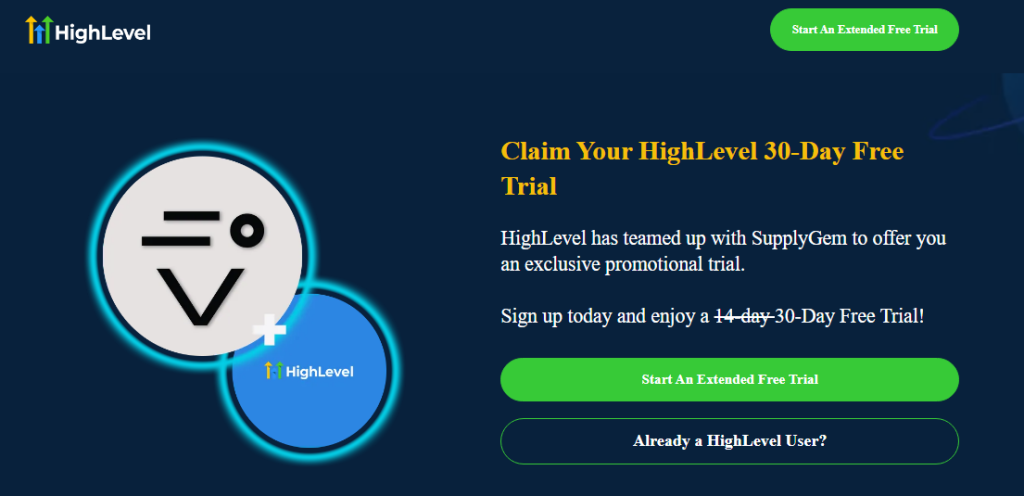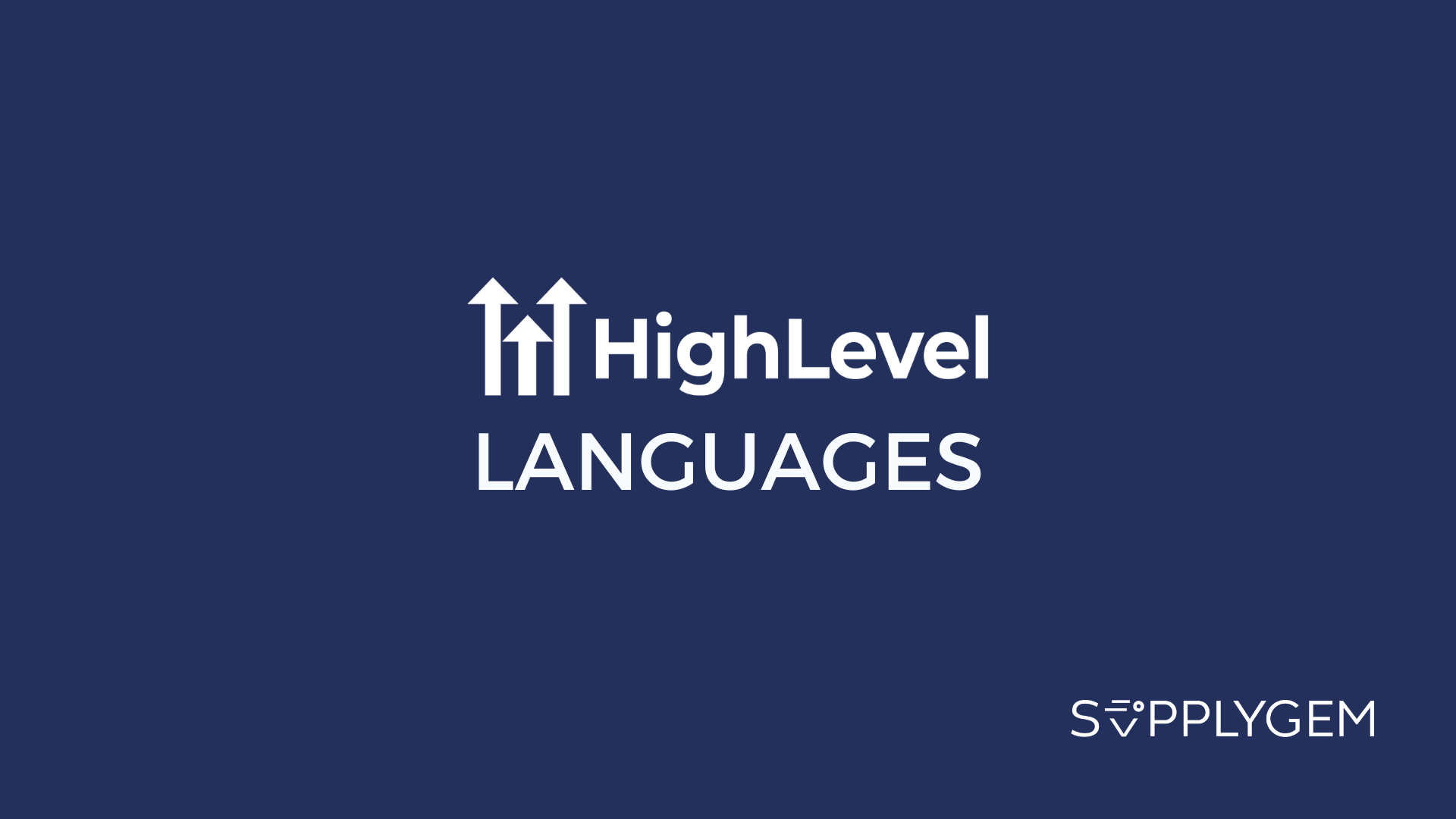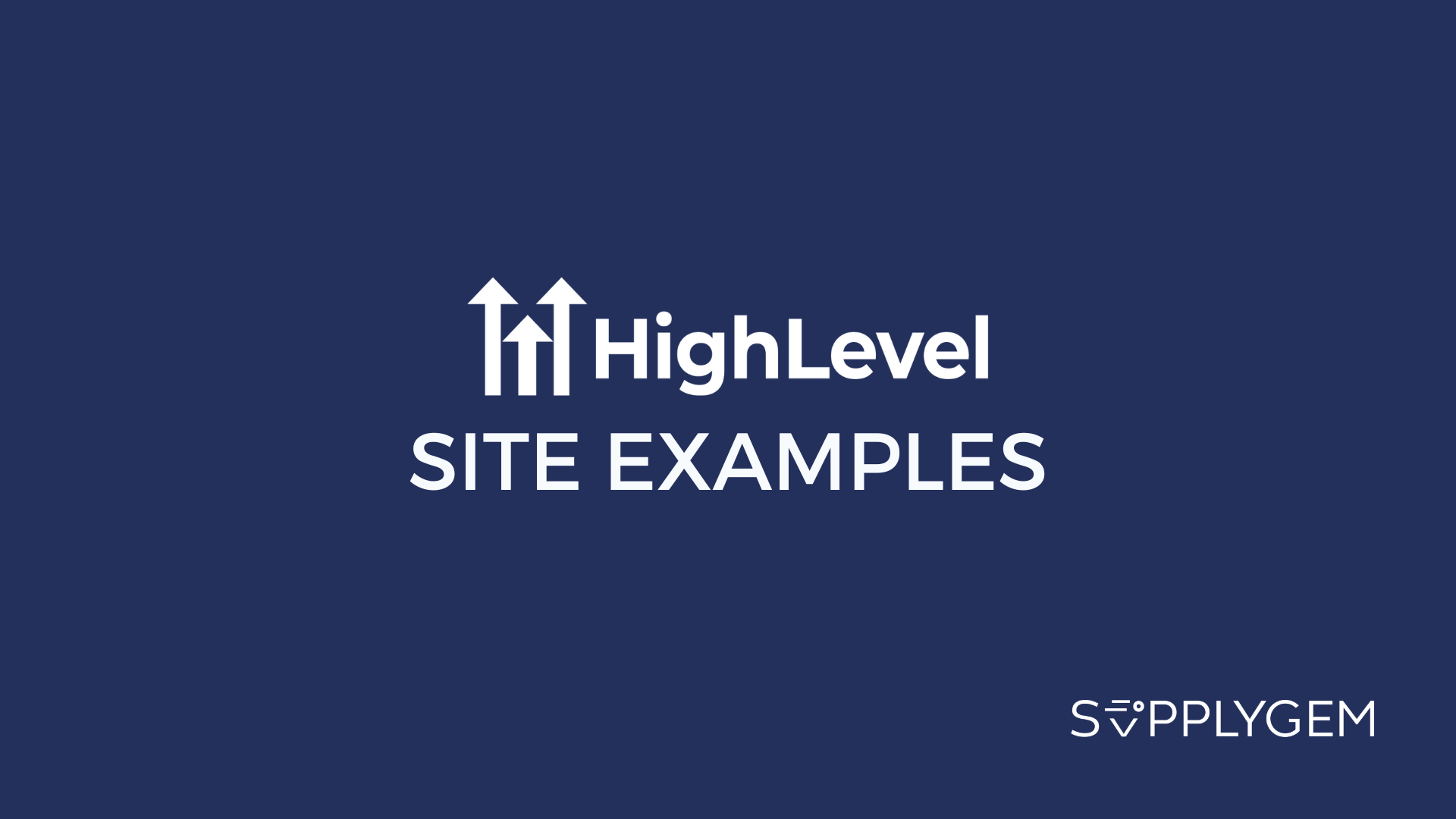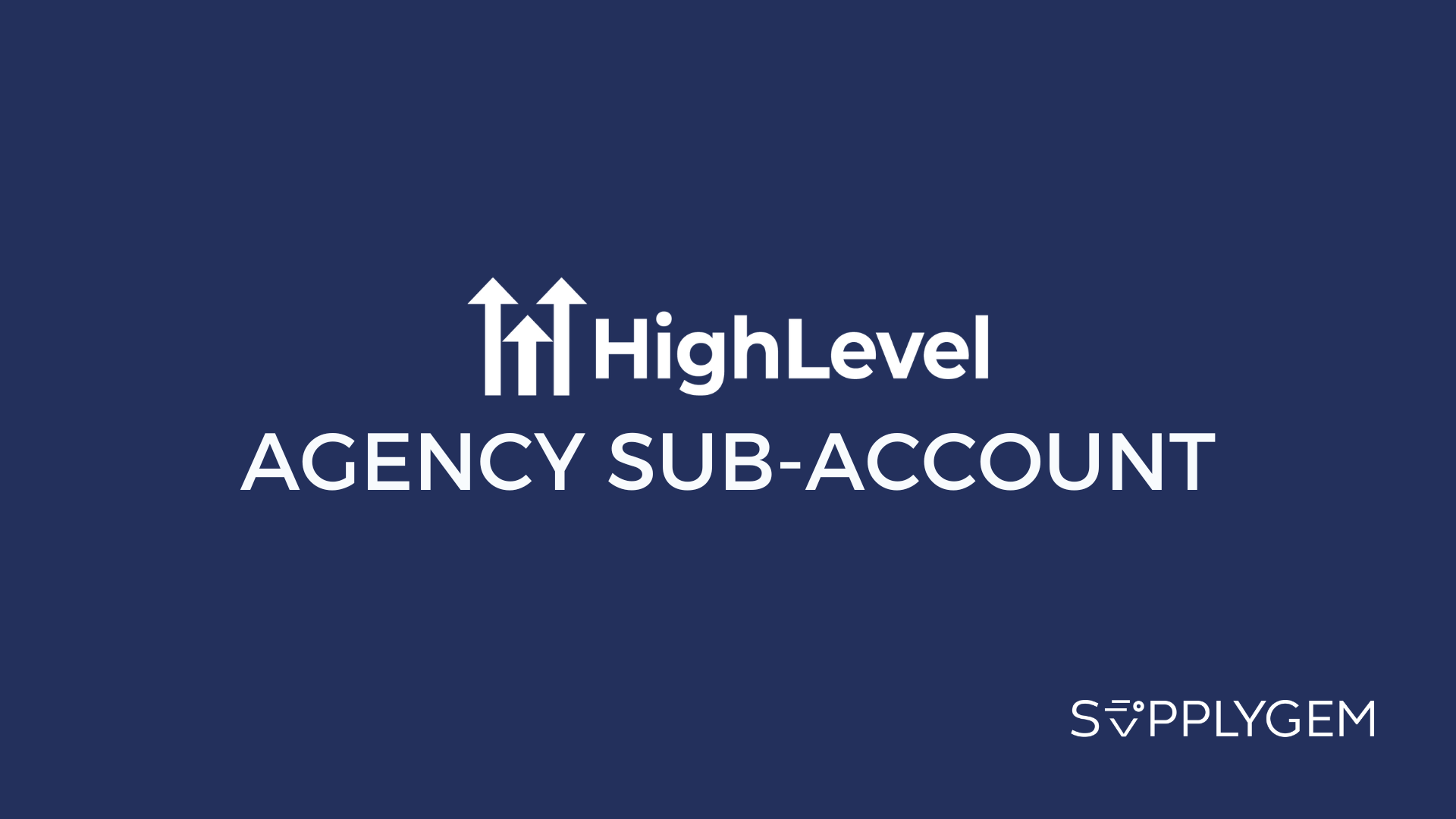Both HubSpot and GoHighLevel are huge platforms with a myriad of features. However, that’s where their similarities end.
Each serves a very different purpose, so the key is to understand what these are so you can determine which one is the best fit.
Key Takeaways:
- GoHighLevel is best for marketing professionals and solopreneurs wanting conversion-focused features
- HubSpot is better suited to larger, growth-focused organizations
- GoHighLevel offers excellent value vs. price
GoHighLevel vs. HubSpot: Quick Overview
| Feature | GoHighLevel | HubSpot |
|---|---|---|
| SupplyGem Platform Ranking | No. 1 | Not ranked |
| SupplyGem Score | 9.7 | 9.2 |
| Trustpilot Score | 4.9 | 2.0 |
| Costs From | $97/month | $9/month |
| Free Trial | Get a Pro plan 30-day free trial (plus extend for another 28 days) | Free plan or 14-day free trial for paid plans |
| Money-Back Guarantee | None | None |
| Platform Pros | – Affordable plans with unlimited features – True all-in-one platform – Advanced automation capabilities – Scalable with SaaS capabilities – Platform is always updating and evolving with new features | – Advanced tools for customer journey and content marketing – Compliant with regulatory frameworks, including HIPAA – Dedicated agents and onboarding services – Integrates with existing tech stacks – Trusted and reliable brand |
| Platform Cons | – Inconsistent customer service – Minimal compliance tools, or they cost extra – Large self-directed learning curve | – Complex pricing with high-cost plans – Many features are locked behind a paywall – Low Trustpilot score – Requires integrations for many features |
| Best for | Marketing agencies and solopreneurs focusing on outbound marketing and conversions | Mid- to enterprise-level organizations focusing on the customer journey and inbound marketing |
First, Let’s Define the Differences
All customer relationship management (CRM) and marketing platforms have a significant overlap in features, and GoHighLevel and HubSpot are no exception.
But even though they look similar, they each serve very different purposes.
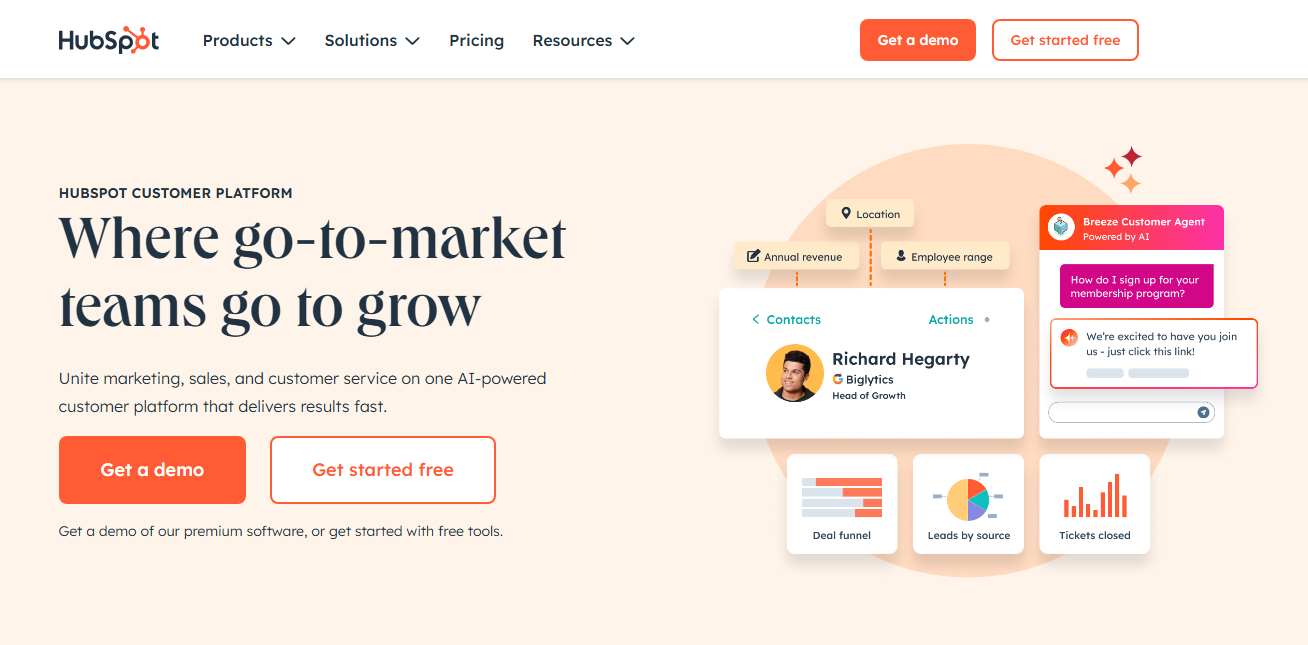
HubSpot actually started in 2006 as a content marketing tool but has since evolved into an inbound marketing, CRM, and sales hub. The big plus is that it’s a long-standing platform with features that match the needs of mature businesses.
Large organizations favor HubSpot because it has enterprise-level tools without the complexity associated with using outdated legacy systems.
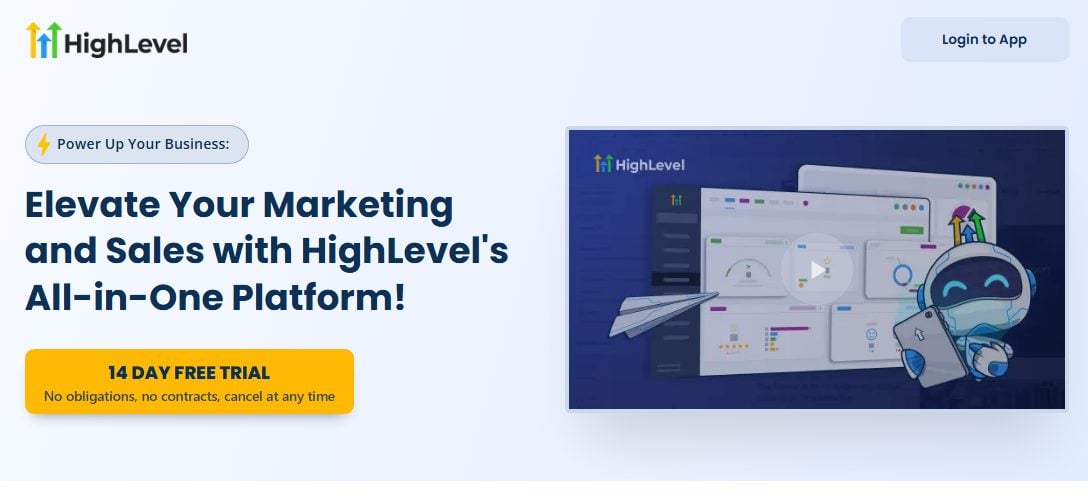
If HubSpot is the grown-up, stable, and secure option, GoHighLevel is the young kid on the block, determined to shake things up.
Created by marketers for marketers, its focus is firmly on outbound marketing and conversions, providing its users with a multitude of ways to convert leads into sales.
GoHighLevel has only been around since 2018, but it has established itself as a major player, offering advanced automation and customization at an attractive price point.
Who Exactly Are These Platforms For?
Since each platform’s focus differs, they also serve different audiences.

HubSpot is better suited for:
- Mid-market to enterprise-scale businesses
- In-house marketing teams
- Organizations with layered approval or compliance processes
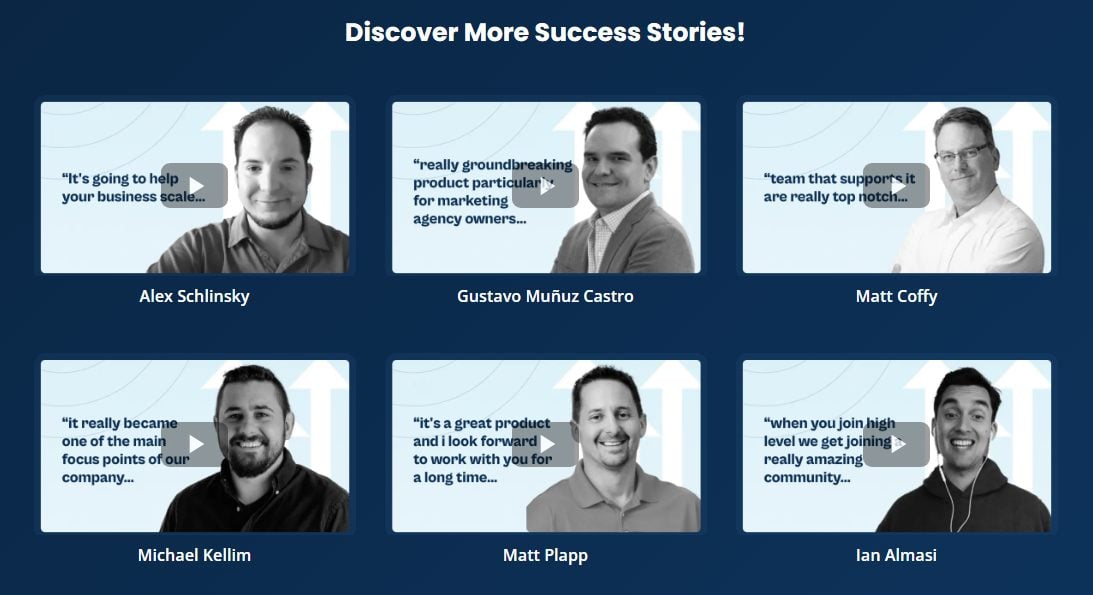
GoHighLevel works best for:
- Marketing agencies managing multiple clients
- Digital freelancers and solopreneurs
- Local businesses and service providers
GoHighLevel vs. HubSpot: Cost Analysis
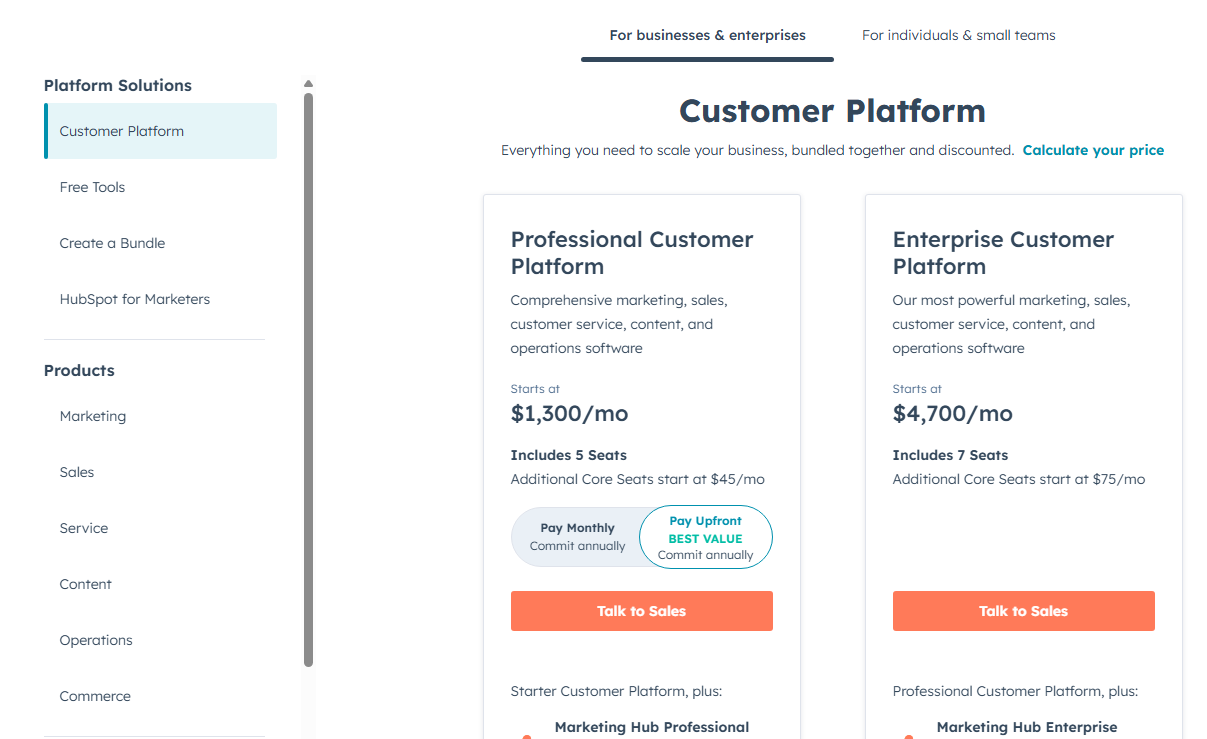
Both platforms offer a range of plans at varying price points.
HubSpot’s pricing can get very complicated, though, because you can mix and match the various “hubs” to suit your needs. Additionally, you can pay for extra seats and enhancements, and there are options for starter, professional, and enterprise-level businesses.
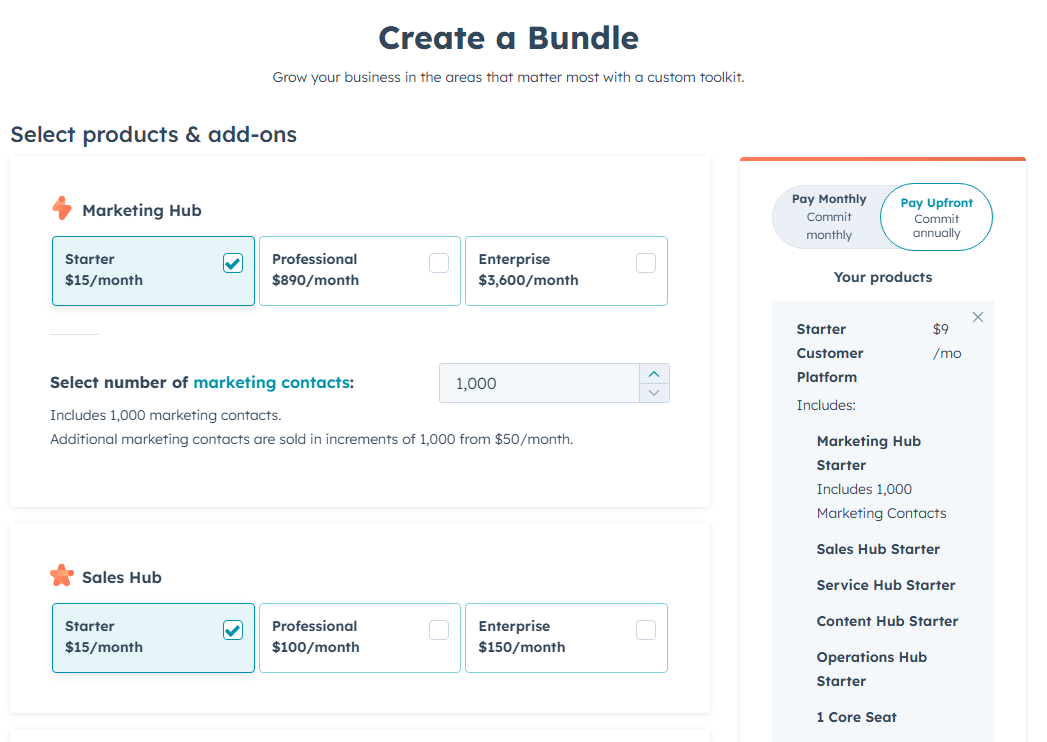
I won’t outline all of HubSpot’s pricing options here; otherwise, this article will be 50 pages long. But to give you an idea, here’s what to expect:
| Plan | Monthly Cost | Annual Cost | No. of seats |
|---|---|---|---|
| Customer Platform (Hub Bundle) | Professional: $1,450 Enterprise: $4,700 | Professional: $1,300 | Professional: 5 Enterprise: 7 |
| Marketing Hub | Professional: $890 Enterprise: $3,600 | Professional: $800 | Professional: 3 Enterprise: 5 |
| Service Hub | Professional: $100 Enterprise: $150 | Professional: $90 | Cost per seat |
| Content Hub | Professional: $500 Enterprise: $1,500 | Professional: $450 | Professional: 3 Enterprise: 5 |
| Starter Customer Platform | $15 | $9 | Cost per seat |
| Starter Marketing Hub | $15 | $9 | Cost per seat |
The bottom line is that the starter plans offer limited features. If you want access to everything, you’ll need to upgrade to a higher plan, which significantly increases the cost.

A few things to note:
- HubSpot has a basic free plan available for up to two users.
- Enterprise plans do not offer an annual payment option.
- Extra seats cost $45 per month (Professional) or $75 per month (Enterprise).
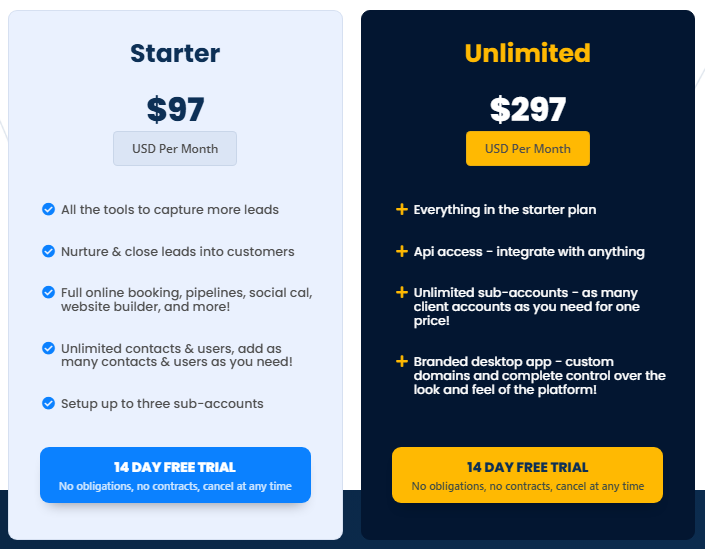
In contrast, GoHighLevel’s plans are very straightforward. There are three to pick from, and all contain pretty much every feature (which are generally unlimited) within the platform, with a couple of exceptions:
- The Starter plan allows you to have up to three sub-accounts.
- The Unlimited plan offers unlimited sub-accounts, as well as API access.
- The Pro plan includes everything in the Unlimited plan, plus you unlock SaaS reselling.
There are additional costs for using certain features, such as the AI assistant, phone, and email, but these are entirely optional.
Here’s what you pay:
| Plan | Monthly Price | Annual Price | Discount for Paying Annually |
|---|---|---|---|
| Starter | $97 | $970 | 16.6% |
| Unlimited | $297 | $2,970 | 16.6% |
| Pro (White Label) | $497 | $4,970 | 16.6% |
So, the key points to make when analyzing both platforms’ pricing structures are:
- HubSpot offers cheaper initial pricing but limits the features you can access.
- GoHighLevel offers all features for a great mid-tier price point.
- To get all of HubSpot’s features, you need an enterprise-sized wallet.
6 Reasons Why GoHighLevel Will Power-Up Your Marketing Agency
Before I continue, I just want to point out that GoHighLevel isn’t just for marketing professionals. These features can be equally effective for both local and online businesses across various industries.
1. Greater Flexibility and Customization
Since the platform gives you access to all its features right away, you have all the flexibility at your fingertips to make the platform work for you, without hitting a paywall.

Funnels, automation, lead pipelines, sales processes, AI service bots, you-name-it—all can be customized, enabling you to build a business platform that focuses on the right things.
For instance, the automation feature has incredible potential, allowing you to create detailed workflows that entirely remove manual input.
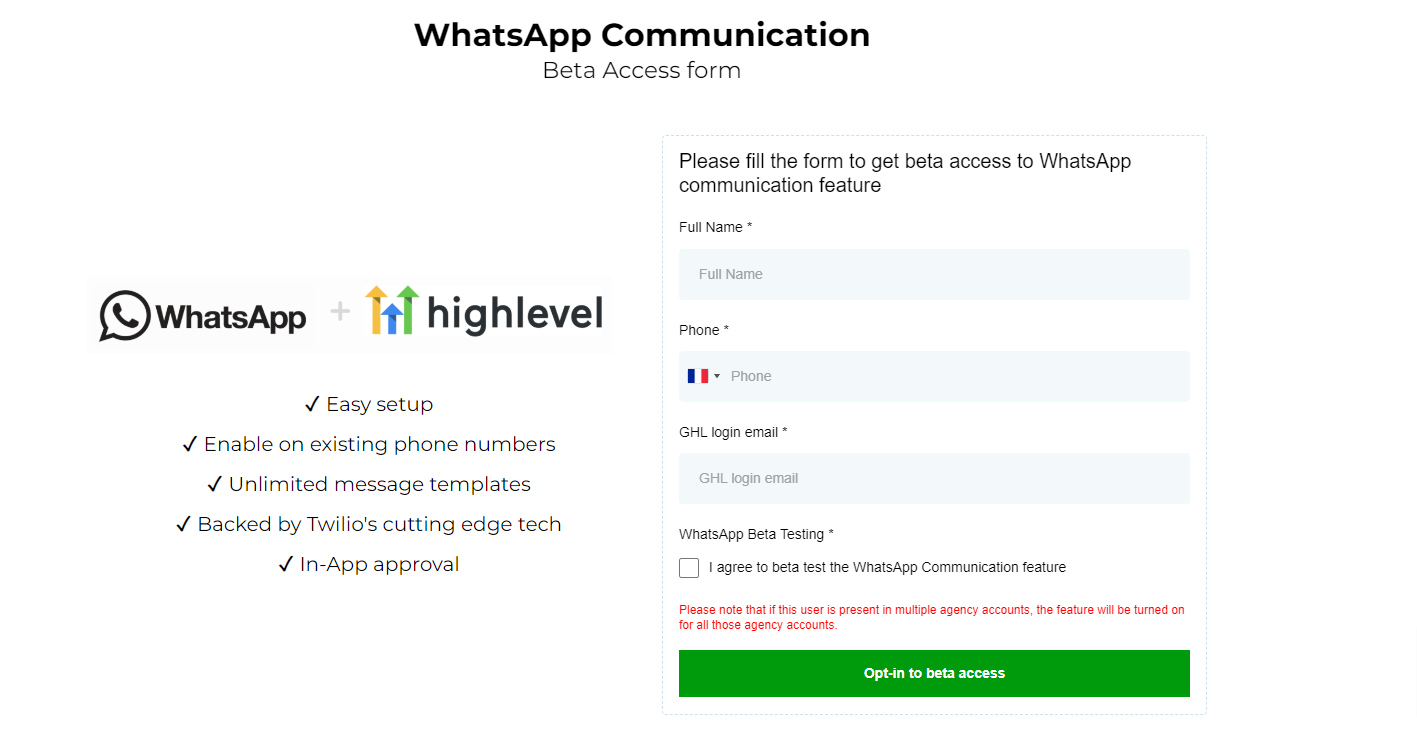
Automate everything from basic email sequences through to complete customer care flows integrated with social media, WhatsApp, ChatGPT, and more.
Yes, HubSpot has powerful workflows, but many of its best features (like conditional branching or multi-channel triggers) sit behind higher-tier pricing. Plus, HubSpot doesn’t give you things like funnel builders or SMS out of the box. You’ll need external integrations for that.
2. Huge White Labeling Potential
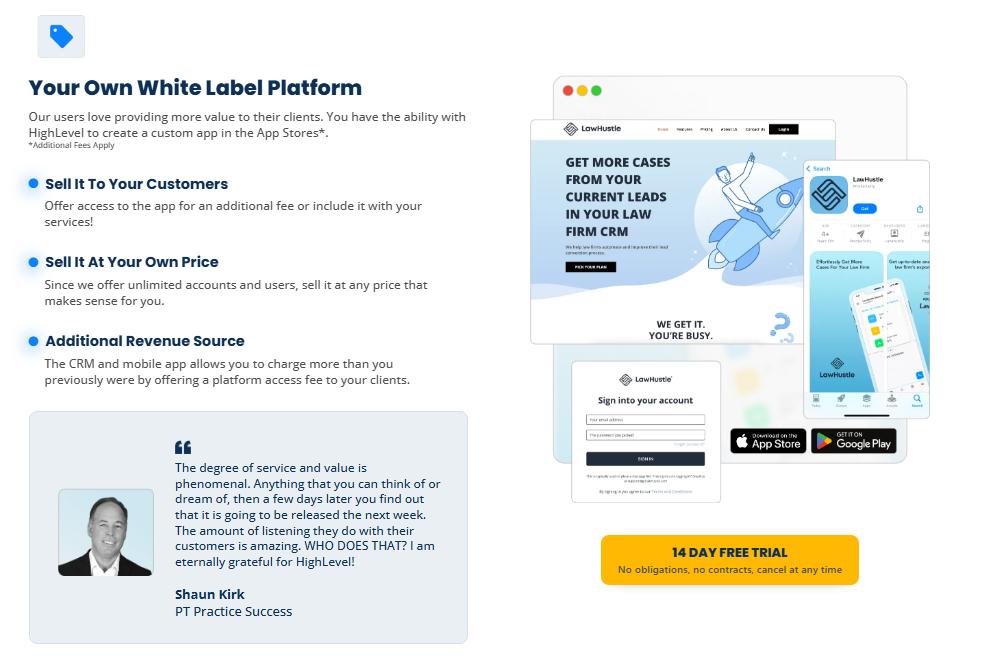
Okay, so white labeling—branding the platform you’re using—isn’t exactly a new concept, but GoHighLevel has taken it to, well, another level.
If you go for their Pro plan, you get access to the SaaS version of white labeling. In other words, you can wrap the entire platform in your branding and sell it as your own product
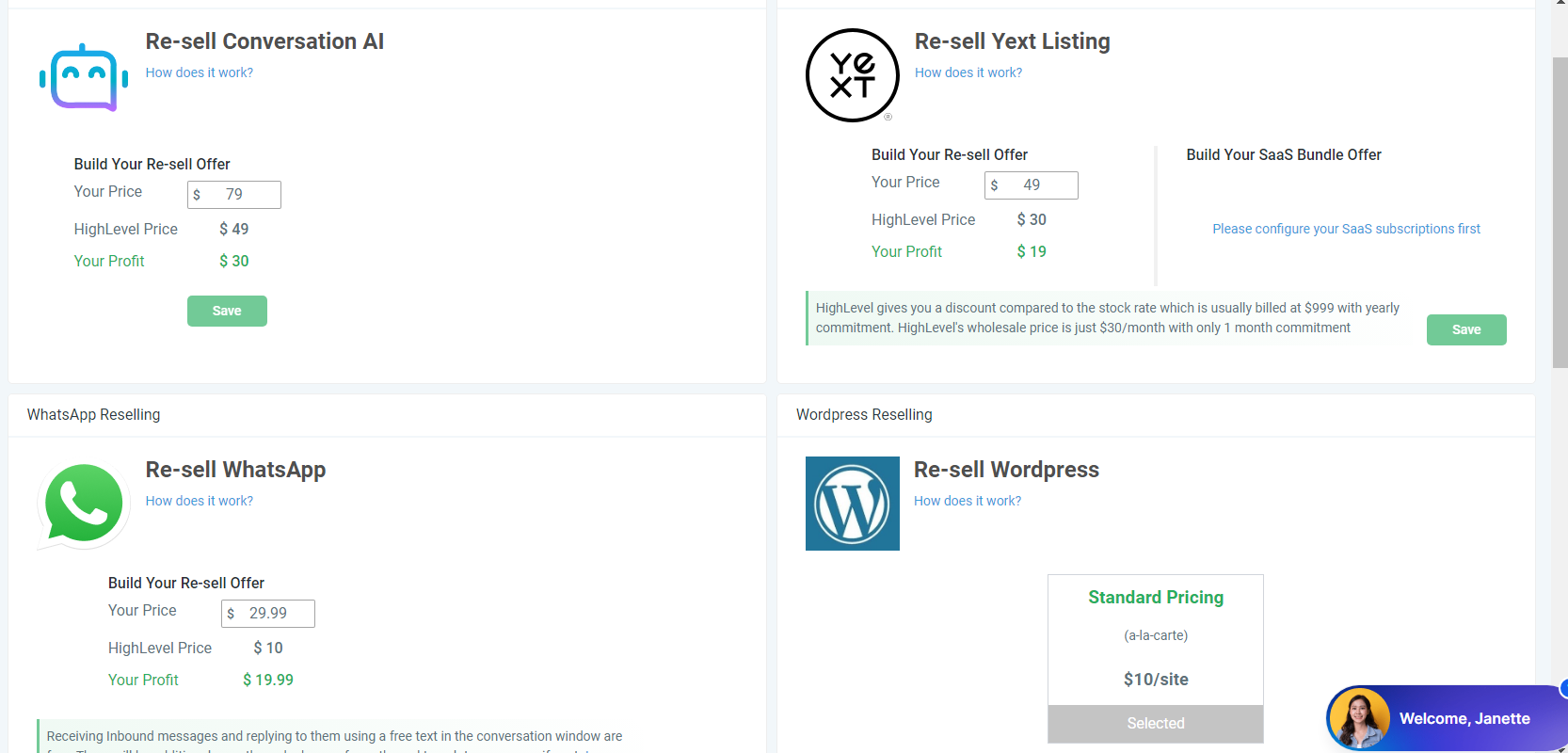
You’re free to set the features, target a specific audience or use case, and even resell third-party apps like WhatsApp and WordPress hosting.
For example, you can create a booking and calendar management platform for gyms and include tailored WhatsApp marketing sequences.
Even better, you can sell it in unlimited quantities, giving you an infinite way to scale.
HubSpot doesn’t offer anything even remotely close to this. In fact, you can’t even white label the platform unless you sign up as an agency partner.
3. One Platform, Fewer Moving Parts
GoHighLevel has evolved really rapidly, and it’s now possible to run an entire business using its features without resorting to any third-party integrations (except for a payment processor).
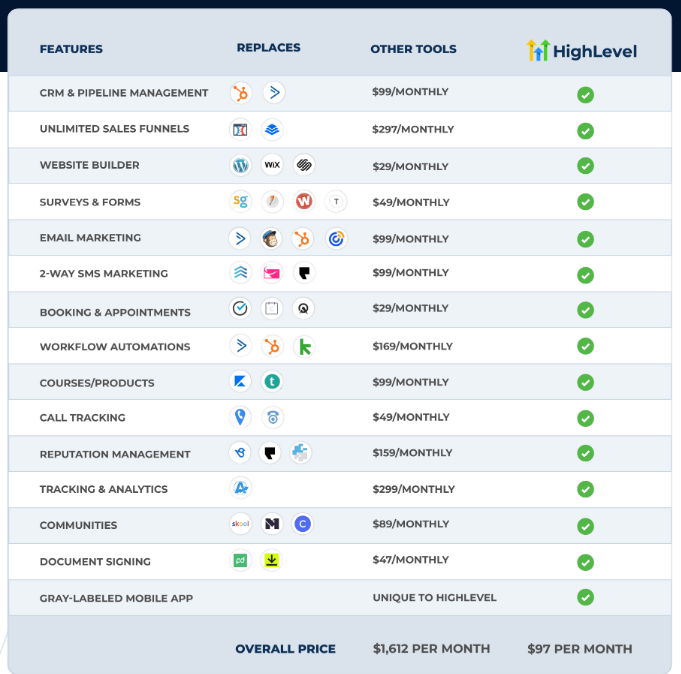
For instance, it has its own phone and email service, so there’s no need to use Twilio or Mailgun.
If you were relying on separate platforms to gain the same functionality, you’d have to use a whole bunch of them—ClickFunnels for funnels, Calendly for scheduling, Mailchimp for email…
You get the idea.
Of course, HubSpot is similar in this respect, but it doesn’t include everything. You still have to rely on integrations and incur extra costs for many features.
4. Always Evolving with User-Driven Updates
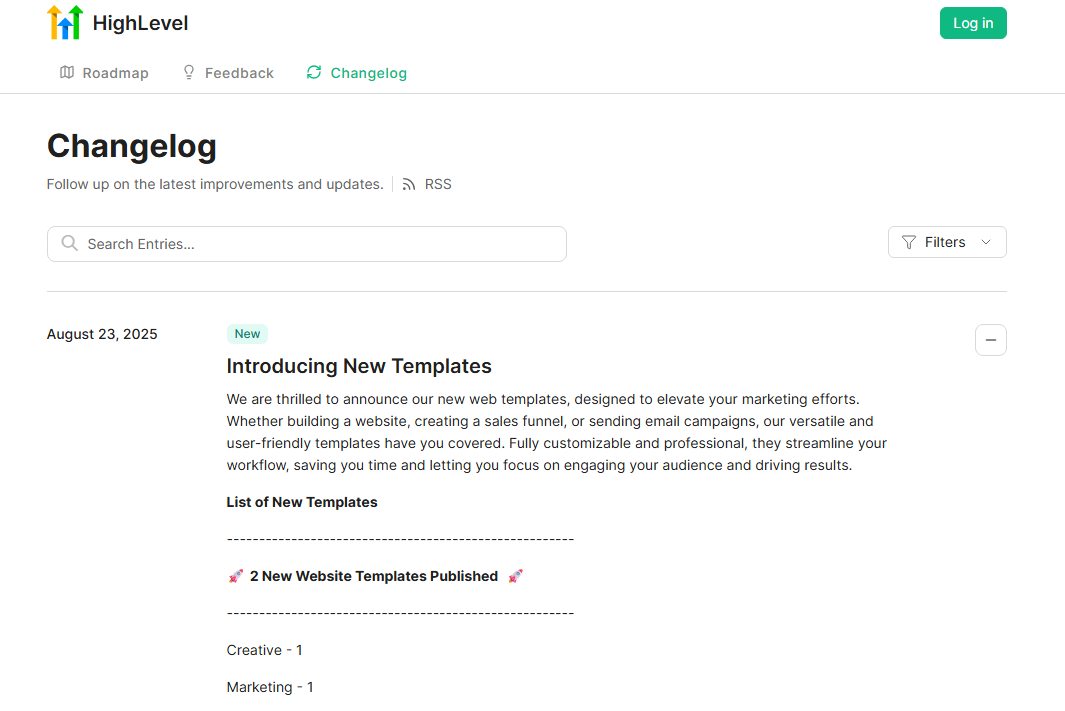
I love how proactive GoHighLevel is with its user base.
It has a full-blown ideas hub where users can make suggestions on how to improve the platform. If ideas get enough traction, GoHighLevel will place them into the roadmap and implement them.
This means that the tools and features are constantly being improved or enhanced.

For instance, SMS AI responders and social media ads integration have both been added based on user demand.
This does occasionally mean there are buggy updates (they’re usually fixed fast, though), but for me, I’d rather have a fast-moving platform than a slow-to-innovate option like HubSpot.
5. Scale Without Paying More
If your business is successful, it’s only natural that you’re going to want to scale at some point.
The fact is, most platforms charge you for the privilege. HubSpot is a classic example.

Want to add more user seats? That’ll cost extra. Want to access better features? Get your wallet out.
GoHighLevel is a unicorn in this respect. Most features are unlimited to begin with, including the number of users you add, but if you want to access unlimited sub-accounts (and, therefore, clients), you only need the Unlimited plan.
With GoHighLevel, this will cost you $297, whereas a similar setup with HubSpot would cost a sizable fortune.
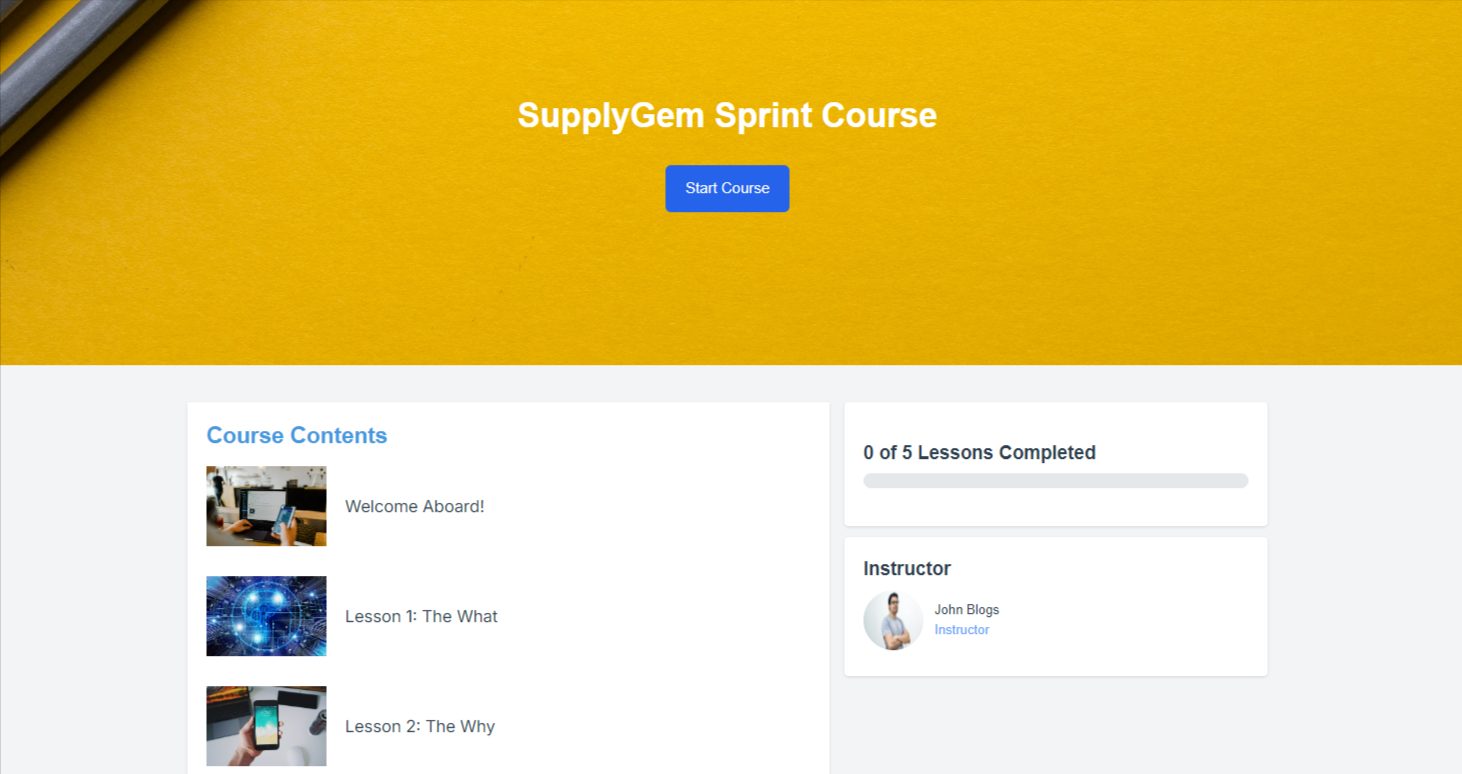
Plus, GoHighLevel includes so many ways to monetize, including:
- Creating and selling courses, communities, and membership sites
- Building and selling snapshots to other users
- Selling the platform as SaaS
- Selling booking agents
- Building and selling marketing assets, workflows, AI agents, and loads more
So, not only can you scale without paying a fortune, but you can also monetize just about anything within the platform.
6. Conversion-Focused Automation
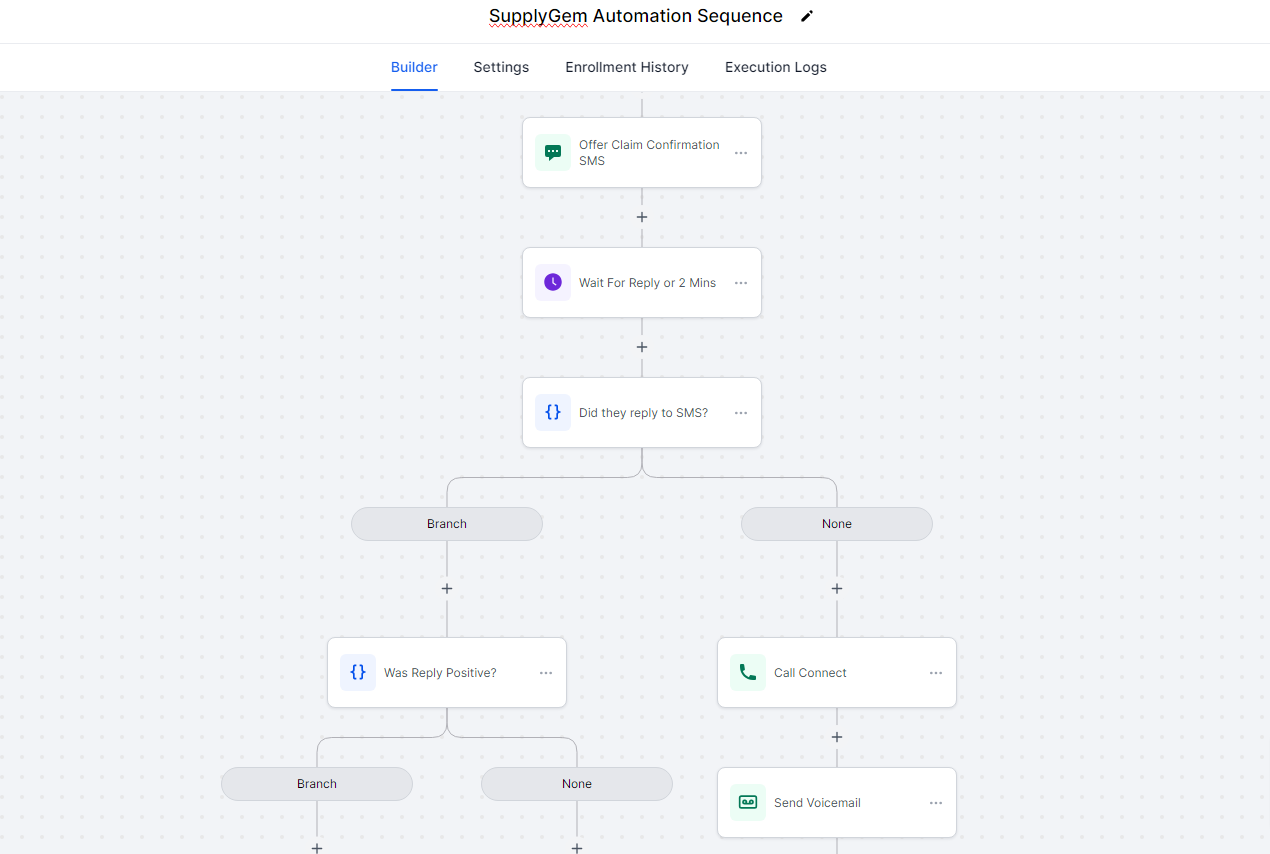
Going back to automation, this is the magic that will help you convert your leads into sales.
During the lead nurturing phase, GoHighLevel has a way to automate anything you can think of.
For instance:
- Auto-assign leads to sales reps.
- Trigger instant SMS/email follow-ups.
- Use AI-driven responses to facilitate conversations and appointment booking.
- And so, so much more!
HubSpot is primarily focused on nurturing long-term customer relationships through personalization and targeted content. That’s great if you already have clients, but if you don’t, GoHighLevel is the one that will close the deal faster.
GoHighLevel Might Be Right for You If…

- You’re setting up a brand new business.
- You already have a business but are looking to expand into other areas, services, or products.
- You don’t want to rely on integrations to get the desired functionality.
- Paying a flat fee for a platform is preferred.
- Digital outbound marketing plays a big role in getting conversions.
- You want to create and sell solutions that benefit local or online businesses.
6 Reasons Why HubSpot Better Suits Growth-Focused Organizations
1. Long-Standing, Trusted Brand

Like many long-standing businesses, HubSpot has gained a reputation as a stand-out platform.
For many larger organizations, brand trust often outweighs cost. After all, if almost 260,000 companies (including many huge brands) use it, it must be safe and reliable.
Therefore, you might prefer to invest in tried and tested features, rather than a relatively new platform that hasn’t yet proved itself to enterprise-level clients.
2. Built for the Customer Experience

HubSpot is designed to create a unified journey across inbound marketing, sales, and customer support.
Its strengths lie in personalization, allowing you to create customer journeys that precisely fit each audience.

The visual journey tool enables you to map out every touchpoint a prospect has with your business, while the powerful audience segmentation tools provide the data needed to personalize each step.
Additionally, HubSpot has better customer support options than GoHighLevel. For instance, you can create client ticketing systems combined with live chat and knowledge bases.
Yes, GoHighLevel has these things, but HubSpot is more advanced in this sense.

You also get top-tier metrics. These are the datasets that enterprise users want to see, such as customer acquisition cost, lifetime value, and satisfaction scores.
This data is key to refining the customer experience, making it exceptional for the customer and more profitable for your business.
3. Easy Integration with Existing Tech Stacks
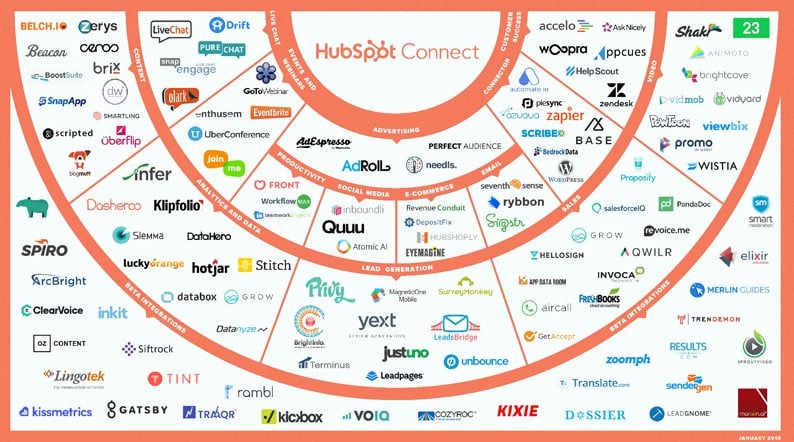
Established businesses aren’t starting from ground zero with their tech stacks. They already use tools that they aren’t necessarily willing to give up.
HubSpot knows how important this is, so it has created a massive ecosystem of integration options. This means all your data can flow from one place to another without creating problematic silos of information.
For instance, it features native integrations with CRM platforms like Salesforce, accounting platforms like QuickBooks and Xero, and customer success apps like Vitally.
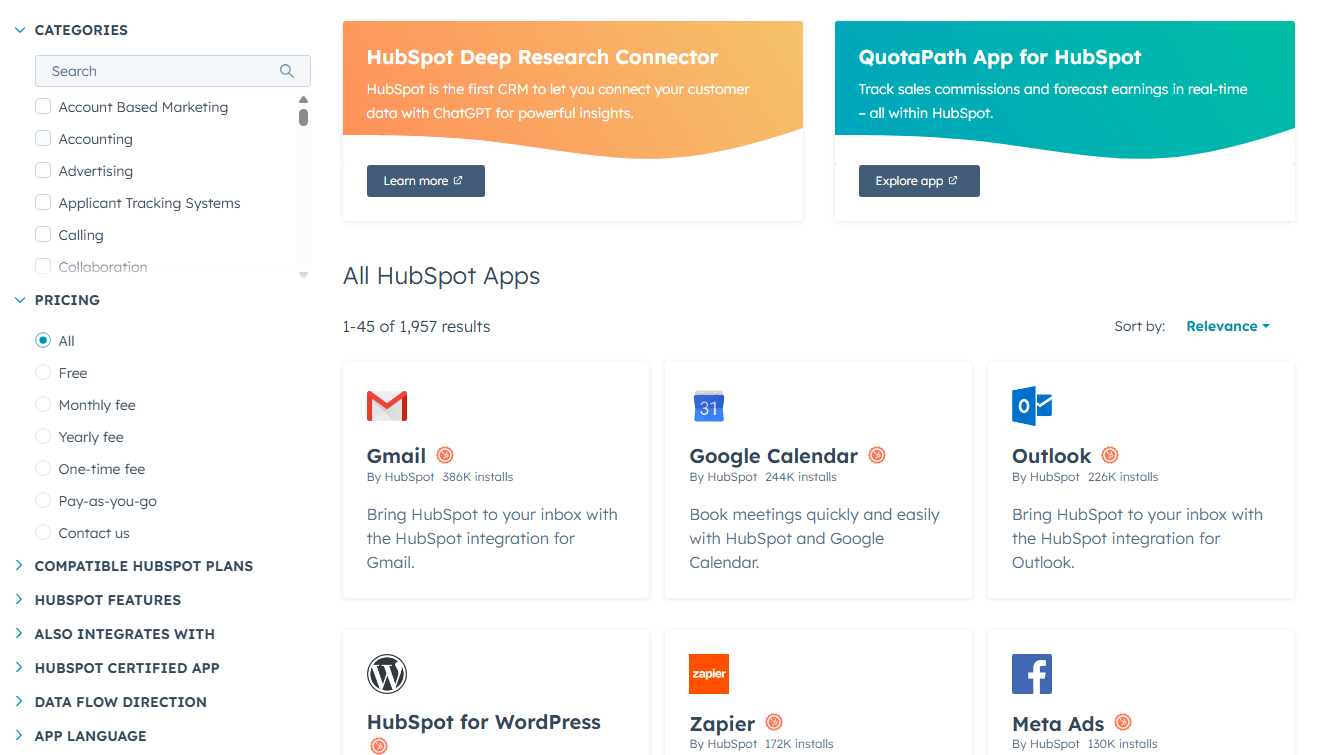
In comparison, GoHighLevel offers very few native integrations, meaning you have to rely on Zapier, which just adds another layer of complication.
GoHighLevel is perfect if you don’t have an existing tech stack. It is the tech stack.
However, if you already use a lot of digital tools, integrating HubSpot will be easier.
4. Content Tools That Do More than Publish
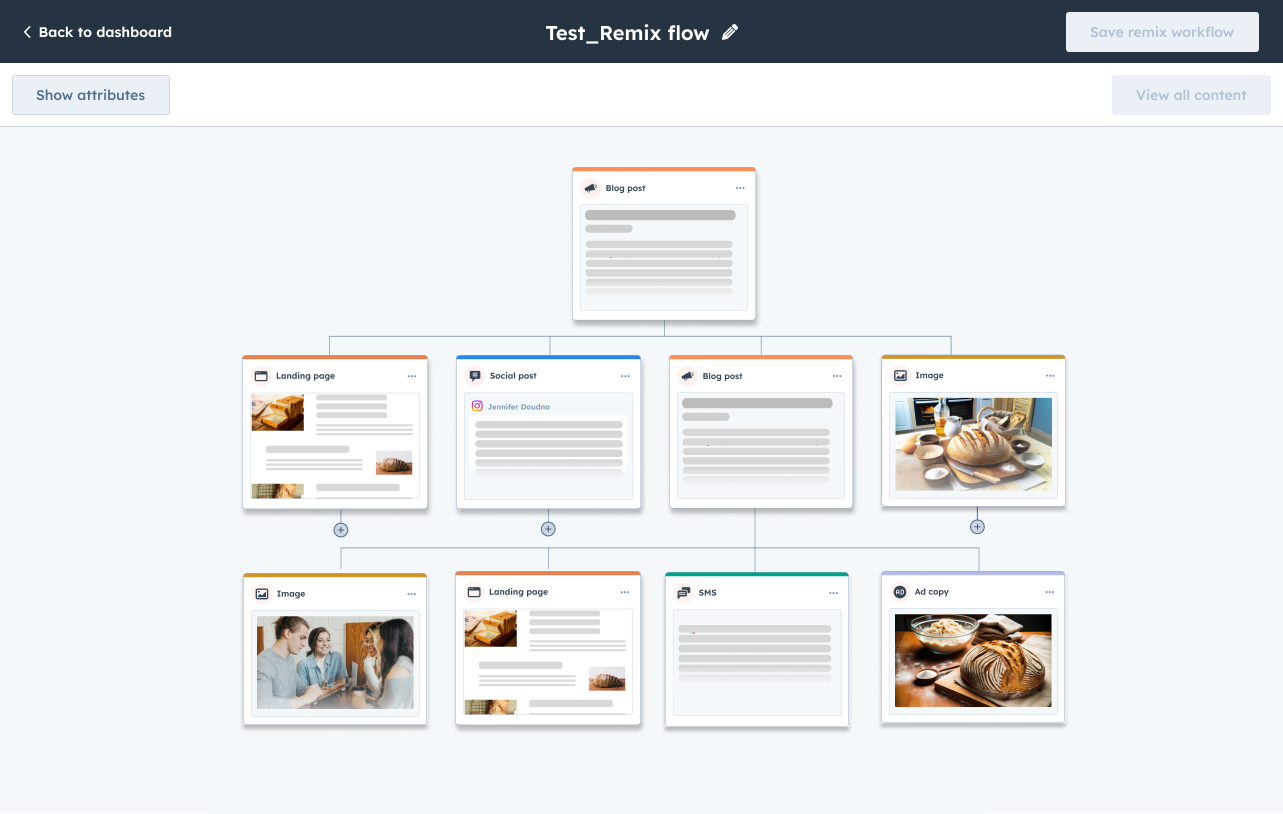
Well-optimized content remains the number one way to drive organic traffic to a website, and HubSpot has perfected this inbound marketing channel.
GoHighLevel’s strengths lie in outbound marketing, so it falls short in this department.
Some of HubSpot’s standout features here include:
- A case study generator that automatically creates them from transcripts or notes. These are essential for establishing credibility and trust, especially for high-value products and services.
- SEO recommendations with actionable data and insights to help your pages rank higher. SEO has never been, nor will ever be, easy, but HubSpot makes it less painful to manage.
- Split A/B testing for all types of web pages so you can try out different versions and see what sticks.
- A content remixer that saves you the effort of repurposing existing content into different formats (social media platforms, etc.).
5. Renowned Support and Onboarding
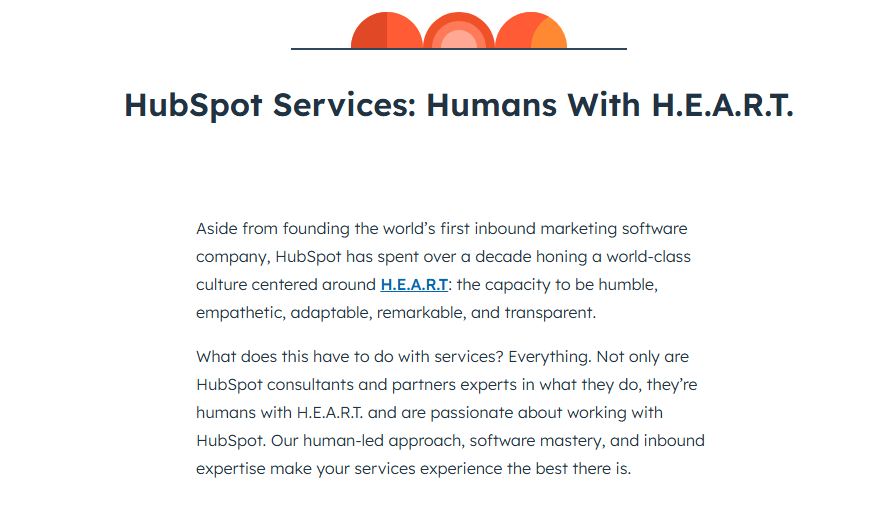
Part of what makes HubSpot so appealing to larger organizations is the access you get to its support. It offers a concierge-style customer agent for its Professional and Enterprise-level users.
This means you access the same individual each time you need help.
They get to know you and your business so they can offer personalized advice that helps you reach your goals faster.
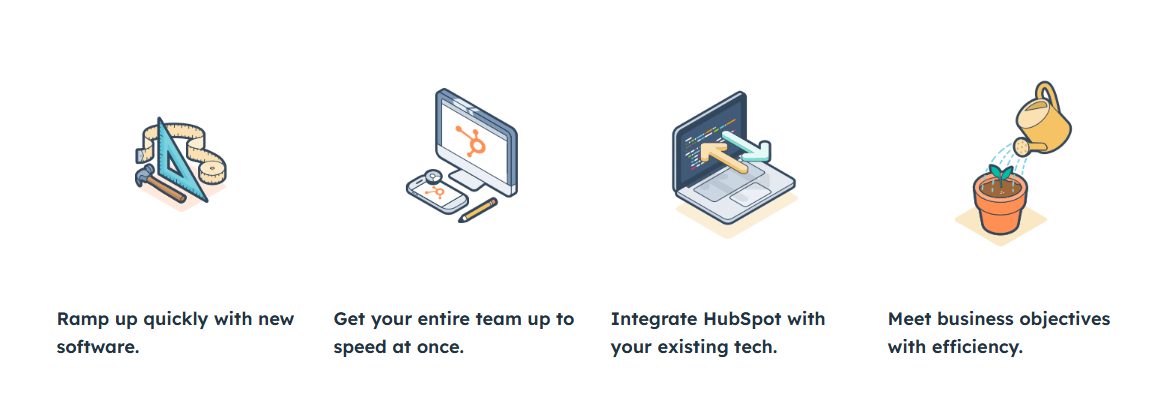
HubSpot also offers a full onboarding service. Yes, this costs extra, but as I said, this isn’t usually a concern for large businesses.
The onboarding service is customized to align with your organization’s goals, as well as its size and complexity. It’ll cover the HubSpot products you purchased, as well as how they integrate and work with your existing tech stack.
This level of support blows GoHighLevel out of the water.
In my experience, GoHighLevel can offer good support, but more often than not, it’s inconsistent, takes ages, and you frequently end up having to repeatedly explain your problem to multiple agents.
6. Strong Compliance and Regulatory Tools

This is a biggie, particularly if you work in a regulated industry.
HubSpot is fully compliant with major regulatory frameworks and doesn’t require any complicated workarounds or additional expenses to maintain compliance.
It offers:
- Tools to maintain GDPR and CCPA compliance, including data processing agreements, consent management, and so on.
- It’s also in the process of rolling out automated GDPR compliance checks and data governance workflows.
- Full HIPAA compliance is standard, making it a suitable tool for healthcare use cases.
- SOC 2 Type II and SOC 3 for data confidentiality and security.
- ISO/IEC 27001 for its cloud infrastructure.

In contrast, GoHighLevel only offers basic tools for GDPR and CCPA compliance. It does provide HIPAA compliance, but not as a standard feature. You have to apply for it and pay a subscription fee to maintain it.
HubSpot Might Be the Better Fit If…

- You need a solution that fits with your existing tech stack.
- Your business operates in a regulated industry.
- Full onboarding and personalized support are important to you.
- Your business focuses more on inbound, organic marketing, rather than outbound campaigns.
- You want a solution that helps you maintain and increase your customer base for existing products and services.
GoHighLevel vs. Hubspot: Bottom Line
Although HubSpot and GoHighLevel share some features in common, their use cases differ significantly.
Therefore, since it’s like comparing apples with pears, I don’t really recommend one over the other.
It’s down to the needs of your business as to which platform will serve you best.
- Pick GoHighLevel if you’re a new, individual, or small business that wants to focus on outbound marketing and high-volume conversions.
- Pick HubSpot if your business is larger and established and needs tools to support customer journeys and organic, inbound acquisitions.
Frequently Asked Questions
Can I Use GoHighLevel and HubSpot Together?
It’s not possible to integrate GoHighLevel with HubSpot unless you create a custom API. However, most businesses prefer to use one platform or the other. Combining them creates extra complications and costs.
Is It Easy to Switch from GoHighLevel to HubSpot and Vice Versa?
It’s possible to migrate contact data from HubSpot to GoHighLevel and vice versa, but other assets and workflows need rebuilding. Both platforms offer migration support for an additional fee.




